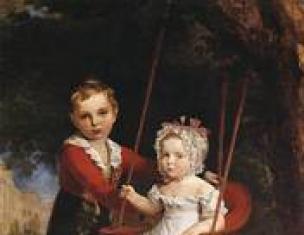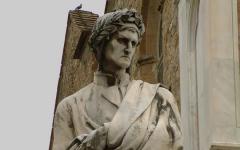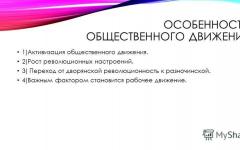YAKUB IBN LAYS
(861?879) ? founder of the Saffarid dynasty (q.v.). Originated from the eastern part of the Seistan region; initially engaged in the craft of coppersmith; together with his brothers he joined the Seistan “volunteers”, i.e. free squads who offered their services to the government for holy war against pagans and heretics. The volunteers gradually became complete masters of Seistan; Ya. stood out among them through his personal merits and, by election of the warriors, became their leader and ruler of the region. Gradually, he expanded his possessions to the banks of the Amu Darya in the north, to the Indus in the east, and to the Indian Ocean in the south; on 3. he subjugated Kirman and Farsistan; in 873 he overthrew the Tahirid dynasty (q.v.) and conquered Khorasan, after which almost all regions of Iran submitted to his authority; for some time the supreme power of Japan was recognized even in Bukhara. In 876, Yan undertook a campaign against Baghdad, but was defeated by the army of the caliph and lost almost all of his possessions. He died in 879 in Khuzistan, having managed to restore his power in southern Persia; in the northern regions, the rule of the Saffarids was restored by Ya's brother and successor, Amr (879?900). The rise of Yanukovych was associated with the uprising of popular elements against the aristocratic system of the Gakhirid state; during the reign of J. and Amr, this system was replaced by military despotism; The masses of the people, including slaves, found in the sovereign a protector against the oppression of their superiors. The fall of the Saffarids was at the same time a return to the old order. Historians, most of whom came from the privileged classes, generally treated Ya and Amr unfavorably; nevertheless, news has reached us about their firm and fair management, about the brilliant state of finances, about the numerous buildings erected by them, etc. In the history of the intellectual life of Persia, the first glimpses of the revival of Persian literature are associated with the names of Y. and Amr. News about Ya's personal character portrays him as a stern warrior who based his rights only on the sword and did not resort to any legal sophisms; in his lifestyle, he remained faithful to the end to the unpretentious tastes developed by the camp environment, and surrounded himself with royal pomp only on special occasions, especially when receiving embassies.
V. Bartold.
Brockhaus and Efron. Encyclopedia of Brockhaus and Efron. 2012
See also interpretations, synonyms, meanings of the word and what YAKUB IBN LAYS is in Russian in dictionaries, encyclopedias and reference books:
- YAKUB IBN LAYS
(861-879) - founder of the Saffarid dynasty (see). Originated from the eastern part of the Seistan region; initially engaged in the craft of coppersmith; joined with his brothers... - YAKUB in The Illustrated Encyclopedia of Weapons:
jeweler. Dagestan. Avars. Near … - IBN in the Big Encyclopedic Dictionary:
(Arabic - son) in one’s own name is placed before the father’s name (forming a “patronymic”) among peoples who use the Arabic language (for example, Ahmed ibn ... - IBN
(Arabic - son), in one’s own name it is placed before the father’s name to indicate a patronymic among peoples who use Arabic ... - IBN V Encyclopedic Dictionary Brockhaus and Euphron:
Arabic the word (corresponding to Hebrew ben) means son; used to mean patronymic, eg: Ahmed I.-Mohammed = Ahmed son... - IBN
[Arabic ibn] son; is placed before the father's name to indicate a patronymic among peoples influenced by the Arabic language and culture (for example, ... - IBN in the Encyclopedic Dictionary:
several In Arabic personal names (and class titles): a component denoting “son”, “descendant” of the one in front of whose name this component appears, for example. ... - IBN
YUNUS (Ibn Yunis) Ali ibn Abd Rahman (950-1009), Arab. astronomer, worked at the observatory ca. Cairo. Compiled used approx. 200 years... - IBN in the Big Russian Encyclopedic Dictionary:
EZRA Moses (1055-1139), Heb. poet. ... - IBN in the Big Russian Encyclopedic Dictionary:
́EZPA Abraham ben Meir (1092-1167), Heb. poet, philologist and philosopher. Op. “The Fate of Man” with the leitmotif of the temporary nature of man’s stay on Earth... - IBN in the Big Russian Encyclopedic Dictionary:
KHALDUN (1332-1406), Arab. historian, philosopher, statesman activist Follower of Ibn Rushd. Played a prominent role in politics. life of Muslims. state in North Africa. ... - IBN in the Big Russian Encyclopedic Dictionary:
FADLAN, Arabic. traveler 10th century Described a journey through Bukhara and Khorezm to the Volga... - IBN in the Big Russian Encyclopedic Dictionary:
TUFAYL (Latinized Abubatser, Abubacer) (? - ca. 1185), Arabic. scientist, philosopher, government activist Doctor and secretary rulers of Granada, Ceuta, Tangier, ... - IBN in the Big Russian Encyclopedic Dictionary:
SINA (Latinized Avicenna, Avicenna) (c. 980-1037), scientist, philosopher, doctor, musician. Lived in Wed. Asia and Iran, was a doctor and vizier... - IBN in the Big Russian Encyclopedic Dictionary:
SAUD (1880-1953), king Saudi Arabia in 1932-53. He fought wars for the unification of Arabia. In 1902-27, Emir of Nejd, in 1927-32, King of the state... - IBN in the Big Russian Encyclopedic Dictionary:
RUSHD, Ibn Roshd (Latinized Averroes) (1126-98), Arab. philosopher and doctor, rep. Arab. Aristotelianism. Lived in Andalusia and Morocco, was a judge... - IBN in the Big Russian Encyclopedic Dictionary:
MISKAWAIH (?-1030), Arabic-speaking historian and philosopher. Tr. By general history, treatises on philosophy and... - IBN in the Big Russian Encyclopedic Dictionary:
KUTAIBA (828 - approx. 889), Arabic. prose writer, philologist, historian. 10-volume historical-lit. anthology "Sources of Information", bibliography. Dictionary "Book of Poetry and... - IBN in the Big Russian Encyclopedic Dictionary:
URRA (Sabit ibn Kurra) (836-901), Baghdad mathematician. Translator and commentator tr. Old Greek ... - IBN in the Big Russian Encyclopedic Dictionary:
KUZMAN (c. 1080-1160), Arab-Spanish. poet. Created new look strophic poetry - zajal (melody). Influenced early Provence. lyrics, poetry... - IBN in the Big Russian Encyclopedic Dictionary:
ZAYDUN (1003-71), Arabic-Spanish. poet. The sofa is lyrical, panegyric, elegiac. ... - IBN in the Big Russian Encyclopedic Dictionary:
DAUD Abraham (c. 1110 - c. 1180), Heb. Aristotelian philosopher and theologian, predecessor of Maimonides. Lived in Spain, wrote in Arabic. language ... - IBN in the Big Russian Encyclopedic Dictionary:
GEBIROL (Latinized Avicebron, Avicebron) Solomon (c. 1021-1055 or 1070), Heb. poet and Neoplatonist philosopher. Lived in Spain. In the treatise “The Source of Life”... - IBN in the Big Russian Encyclopedic Dictionary:
BATTUTA (1304-77), Arab. traveler. Description of travel in Egypt, Arabia, Mesopotamia, Syria, Asia, Iran, Crimea, southern. regions of Rus', Wed. Asia,... - IBN in the Big Russian Encyclopedic Dictionary:
BAJA (real name Abu Bakr Muhammad ibn Yahya; Latinized Avempace, Avenpace) (c. 1090-1138), Arabic. scientist, philosopher, government activist... - IBN in the Big Russian Encyclopedic Dictionary:
AL-KHATIB (1313-74), Arabic-Spanish. scientist, poet. OK. 60 tr. in history, geography, philosophy, medicine, literature, incl. on Muslim history. ... - IBN in the Big Russian Encyclopedic Dictionary:
AL-HAYTHAM (Latinized Algazen) (965-1039), Arabic. scientist. Tr. in Physiol. and geom. optics "Treasure of Optics" (7 books, translated into Latin... - IBN in the Big Russian Encyclopedic Dictionary:
AL-MUT'AZZ (861-908), Arabic. poet and philologist. Poems chronicle of the reign of Caliph al-Mu'tadid (892-902), aphorisms, op. on poetics "Book about... - IBN in the Big Russian Encyclopedic Dictionary:
(Arabic - son), in own. The name is placed before the father's name (forming a "patronymic") among peoples who use Arabic. language (eg Ahmed ibn Abdullah... - YAKUB in the Dictionary for solving and composing scanwords:
Male... - IBN in the New Dictionary of Foreign Words:
(Arabic) in Arabic personal names (and class titles) - a component denoting son, descendant of the one before whose name ... - IBN in the Dictionary of Foreign Expressions:
[Ar.] in Arabic personal names (and class titles) - a component denoting the one in front of whose name it stands, for example. Ahmed ibn Abdullah... - YAKUB in the dictionary of Synonyms of the Russian language.
- IBN in Lopatin’s Dictionary of the Russian Language:
ibn and (at the beginning of a compound proper name) Ibn- is written separately from the subsequent name, for example: Ab'u Al'i ibn S'ina, Ibn R'usta, ... - YAKUB in the Complete Spelling Dictionary of the Russian Language:
Yakub, (Yakubovich, ... - IBN in the Spelling Dictionary:
ibn and (at the beginning of a compound proper name) ibn- is written separately from the subsequent name, for example: ab'u al'i ibn s'ina, ibn r'usta, ... - IBN in Modern explanatory dictionary, TSB:
(Arabic - son), in one’s own name it is placed before the father’s name (forming a “patronymic”) among peoples who use the Arabic language (for example, Ahmed ibn ... - YAQUBI ABU-L-ABBAS AHMED IBN ABU YAQUB in Bolshoi Soviet encyclopedia, TSB:
(al-Yakubi, al-Yakubi) Abu-l-Abbas Ahmed ibn Abu Yaqub (born unknown - died 897), Arab historian. Born in Baghdad; lived in... - NATANSON YAKUB in the Great Soviet Encyclopedia, TSB:
(Natanson) Jakub (20.8.1832, Warsaw, - 14.9.1884, ibid.), Polish chemist. In 1855 he graduated from Dorpat (Tartu) University. In 1862-66, professor at Warsaw ... - NASYRL YAKUB in the Great Soviet Encyclopedia, TSB:
Yakub (11/8/1899, Baku, - 11/11/1958, Alupka), Turkmen Soviet poet. Member of the CPSU since 1925. Member of the Great Patriotic War 1941-45. Published from... - KUBICY JAKUB in the Great Soviet Encyclopedia, TSB:
(Kubicki) Jakub (1758, Warsaw, - 13.6.1833, Wilkow, near Warsaw), Polish architect. A student of D. Merlini, he lived in Italy in 1783-86. Buildings... - KOLAS YAKUB in the Great Soviet Encyclopedia, TSB:
Yakub (pseudonym; real name and surname Konstantin Mikhailovich Mitskevich, Belarusian Soviet ... - KINDI ABU YUSUF YAKUB BEY ISHAK in the Great Soviet Encyclopedia, TSB:
al-Kindi Abu Yusuf Yaqub bey Ishaq (about 800, Basra, - about 870, Baghdad), Arab philosopher and scientist, founder of Eastern Peripatetism... - GUSNIK YAKUB in the Great Soviet Encyclopedia, TSB:
(Husnik) Jakub (1837, Veyprnice, - 26.3.1916, Prague), Czech scientist and inventor in the field of photomechanical methods of reproduction. In 1868 he developed one... - GANETSKY YAKUB in the Great Soviet Encyclopedia, TSB:
Yakub (Furstenberg Yakov Stanislavovich) (party pseudonym: Heinrich, Kuba, Mikola and, Machinist) (15.3.1879 - 26.11. 1937), leader of the Polish and Russian revolutionary ... - PHILOSOPHY OF BELARUS in the Newest Philosophical Dictionary:
complex philosophical ideas and ideas (including social philosophy, ethics, aesthetics, philosophical understanding of religious, atheistic, pedagogical, natural science, etc. views) that have developed... - ALPHONS VIII in the Directory of Characters and Cult Objects of Greek Mythology:
King of Castile (Spain), who reigned from 1158 to 1214. Son of Sancho S and Blanca of Navarre. J.: Since 1177, Eleanor, daughter of the king... - PALESTINIAN LIBERATION FRONT in the Historical Directory of Terrorism and Terrorists:
(Jabhat Al-tahrir Al-filistiniyyah) - Volga Federal District. Terrorist group that arose as a result of divisions within the ranks Popular Front Liberation of Palestine - General Command...
· Official website ·
Yaqub ibn Osman ibn Mahmud ibn Muhammad ibn Mahmud al-Charkhi was born in Khorasan in the village of Charkh near Ghazni (now a village in the Logar province of the Islamic Republic of Afghanistan) in the family of a scholar-theologian. According to some sources, this happened in 760 AH (1359 AD). Gregorian calendar). The ancestors of Yakub Charkhi, educated people, lived in these places for a long time and enjoyed great respect in the local Muslim community. With his extraordinary kindness, high morality and gentle character, Yakub took after his grandfather Mahmud, known for the fact that he wanted to be like the Prophet Muhammad in everything.
As a child, Yakub Charkhi was distinguished by a thirst for knowledge and a phenomenal memory. His biographers claim that he knew by heart not only the Koran, but also 500 hadiths. Primary education the future alim received in the family. Seeing his son’s great desire to study further, Osman ibn Mahmud sent him to Herat. To study at the madrasah, the young man had to live in the strict morals of the monastery of one of his teachers, Abdullah al-Ansari al-Harawi, but this only contributed to his focus on educational process. In Herat, Yakub learned natural sciences and fundamentals of theology. He then continued his studies in Egypt, where he studied Sharia, logic and astronomy. Among his teachers was the famous Islamic encyclopedist Shihabuddin al-Shiravani. Together with Yakub, Zainuddin Hafi, the future founder of the Zainian branch of the Suhrawardiya tariqa, studied at the Egyptian madrasah. The young theologians became friends and spent a lot of time together studying books and having philosophical conversations. Yakub Charkhi completed his studies in Bukhara. Having received an ijazat (letter of permission) for the right to independently issue fatwas on theological and legal issues, the young mujtahid planned to return to Khorasan, but before leaving he decided to visit the sohbet of Bahauddin Naqshband, about whom he had heard a lot while studying in Bukhara. The conversation with Sheikh Bahauddin had a great influence on Yakub Charkhi, and he expressed a desire to take the path of the mystic Khajagan and become the murid of the great sheikh. The decision was not easy for Bahauddiin Naqshband. On the one hand, in front of him was an insufficiently experienced faqih, little knowledgeable in tasawwuf, and the sheikh did not have time to teach him the basics of teaching. On the other hand, the spiritual leader of the order immediately saw in young man enormous spiritual potential. Yakub Charkhi himself, in one of his works, described the hesitations of Sheikh Bahauddin and his experiences as follows:
Hoping that the gates of happiness would open for me, I was still very afraid of being rejected. We performed morning prayer together with the sheikh. After the prayer, he turned to me: “There is good news for you. You're accepted. May this be good for you! We do not accept a person with shortcomings. And even when we accept a worthy person, we wait for a special hour to come for this person. And because of this, we accept it with a delay"
Yakub Charkhi. On the spiritual path
However, this time Bahauddin Naqshband did not become his murshid. First, the great sheikh sent him to study the basics of tariqa in Dashkulek, which is not far from Balkh, to the righteous Maulana Tajuddin. When Yakub Charkhi, enriched with new knowledge, returned to Kasri-Hinduvan, where Bahauddin Naqshband lived, the great sheikh took him as a student and taught him the technique of numerical remembrance “Vukuf Adadi”. However, as if anticipating the imminent end of his earthly journey, Sheikh Bahauddin ordered Yakub Charkhi to become the murid of his successor Alauddin Attar, who inherited the silsila. Sheikh Baha ad-din Muhammad ibn Burhan ad-din Muhammad al-Bukhari died in 1389. After his death, a struggle for leadership began within the order between Alauddin Attar and another influential murid of Sheikh Bahauddin Muhammad Parsa. Not wanting to participate in the dispute, Yakub Charkhi, under the guise of collecting information for the maqamat (life) of Bahauddin Naqshbanad, first retired to Badakhshan, and from there moved to his homeland, to Charkh. It was probably during this period that, based on the collected materials, he released two compilations of risalas - Risala-yi abdaliyya (“Message on Substitutes”) and Risala-yi unsiyya (“Message on Attachment”). When Alauddin Attar managed to take control of almost the entire community, he sent a messenger to Charkh to remind Yakub Charkhi about the will of Sheikh Bahauddin. He did not object, and having arrived in Chaganian, he became the murid of Sheikh Alauddin and served him until his death, which occurred in 1399/ 1400 From Allauddin Attar, Yakub Charkhi received the secret knowledge of the order, irshad - the right to be a mentor of Sufis, and silsila - successive holiness.
For some time after the death of his teacher, Yakub Charkhi remained in Chaganian. After the death of Amir Timur, the country became restless, and Sheikh Yaqub and his students moved to the Gissar Valley. There, in the village of Khalkatu near modern Dushanbe, he founded a new Sufi school, in which he taught his murids according to the adab of the Naqshbandi tariqa, guiding many pious Muslims on the path of spiritual perfection. Being himself an unusually kind and highly moral person, he taught this to his followers. Sheikh Yaqub urged his students to do only those actions that would certainly be approved by Allah. Great value Yakub Charkhi gave rabita - the spiritual connection of a person with God through a perfect teacher who is able to maintain this connection unbroken. He also allowed jazbah (spiritual attraction), believing that Allah can attract any person to service and raise him to spiritual perfection, regardless of the depth of his knowledge, level of spirituality and social status. Therefore, he left his murids, future Sufi mentors, the right to determine for themselves what to teach their followers - zikr nafi wa isbat or jazbe. The great sheikh of the Khajagan-Naqjbandi order sacredly observed the covenant of Bahauddin Naqshband, who said that “the heart should always be with God, and the hands should be at work.” Yakub Charkhi himself was a great worker and educated his students through physical labor. Together with his murids, the great sheikh laid out a large garden on the banks of the Kafirnigan River, in which he worked until last days of your life. Yakub Charkhi took students only from among well-trained followers of the tariqa, capable of understanding the secret knowledge that he himself possessed. The spiritual leader of the order always used one of his most famous students, Nasir ad-din Ubaydullah ibn Mahmud Shashi (Khoja Ahrar), as an example, repeating:
The student must appear to his murshid as Ubaydullah does. The lamp and its wick are intact, there is enough oil, all that remains is to bring a match to it
Hasan Kamil Yilmaz. Golden Silsila. Chain of Succession of the Sheikhs of the Naqshibandiyya-Khalidiyya Tariqa
Sheikh Yakub Charkhi left behind a literary legacy. His main work “Risala-ye Nayiya” examines the main provisions of Sufism from the point of view of the Khajagan-Naqshbandi tariqa and contains comments on the work of Jalal ad-din Rumi “Masnavi-e Manavi” (“Poem about hidden meaning"). He also wrote the treatise “Risala-ye mukhtasar dar isboti vukhudi avliyo va murohibati eshon” (“A short treatise on the proof of the existence of saints and their contemplation”), which has survived to this day, as well as tafsir of the 29th (Tabrak) and 30th ( Amma) juzes of the Koran in the Tajik language.
Sheikh Yaqub ibn Osman ibn Mahmud ibn Muhammad ibn Mahmoud al-Charkhi died in the village of Khalkat in the year 851 AH on the 5th of the month of Safar (May 1, 1447 according to the Gregorian calendar). He passed on the secret knowledge of the order of minters and silsil to his murid Khoja Ahrar. The mazar of Hazrat Yakub Charkhi is now located in the rural community of Guliston, Rudaki district, Republic of Tajikistan, southeast of Dushanbe (38’32’33.1’N 68’52’04.2’E).
Arab. ??? ???? ????? ??? ????? ?????????)(800 – about 873) - famous Arab mathematician, philosopher, scientist and astrologer, a native of Basra, worked in the “House of Wisdom” in Baghdad. He was one of those persons whom Caliph Al-Mamun instructed to translate into Arabic the works of Aristotle and other Greek philosophers. IN Western Europe was known under the Latinized name Alkindus, nicknamed the “Arab Philosopher.” He is the author of about 250 treatises on metaphysics, logic, ethics, mathematics, astrology, medicine, meteorology, optics, music. Main works: “Review of the works of Aristotle”, “Treatise on the number of books of Aristotle and what is necessary for mastering philosophy.” “On First Philosophy”, “On the Five Essences”, “On the Proximate Cause of Creation and Destruction”, “On Definitions and Descriptions of Things”, “On the Application of Indian Arithmetic”, “On the Harmony of Numbers”, “On Unity from the Point of View of Number” , “On regular polyhedra”, “On the approach of the chord of a circle”, “On rays”, “On incendiary mirrors”, “On the cause blue color sky”, “On the cause of ebbs and flows”, etc. About 40 treatises have survived to this day. Translator and commentator on the works of Aristotle. Founder of Eastern Peripatetism (falsafa). He defined philosophy as the “art” of knowing the true nature of things to the best of human ability, and came to original ideas - the coeternity of the existence of spirit and matter, to the activity of the mind. At the heart of the world he has 5 “primary substances”: matter, form, movement, space, time. Time is eternal, but its axles, like a wheel, are different. Al-Kindi interpreted the subject of philosophy as knowledge about everything. He considered knowledge of mathematics essential for understanding philosophy. He was the first to strive to separate philosophy from theology. Al-Kindi was the first to develop the concept of four minds: actual, potential, acquired and manifest. The philosopher put forward a revolutionary idea for his time about the cognizability of the world by the human mind. identified three stages of scientific knowledge, through which it is necessary to go sequentially in order to achieve true knowledge: 1. logical-mathematical; 2. natural science; 3. metaphysical (philosophical). He was the first to record musical tones and melodies using Arabic letters.
Travels of Ibn Yaqub
The Spanish Jew Ibrahim ibn Yaqub, who wrote in Arabic, participated in the Cordoba embassy to the German Emperor Otgon I in 965. In the second half of the 10th century, the Slavic countries of Central Europe were still “unknown lands” for the Arabs. Ibn Yaqub is the only early medieval traveler to the Slavic Baltic states whose personal observations have reached us. Apparently, for trading purposes, he alone traveled through Magdeburg on the middle Elbe to “the fortress of Prince Nakon... called the City... The [Baltic] Sea penetrates Nakon’s country with great difficulty, for all his lands consist of meadows, thickets and swamps.” Doubtless Ibn Yaqub visited the Slavic city of Miquiline, now Mecklenburg, south of the Baltic port of Wismar.
Ibn-Yakub also describes the path from Magdeburg to the south, to the country of Buislav (Czech prince Boleslav the Terrible); across the Muldava River (Mulde, the left tributary of the Elbe), from it 50 km to the forest, which stretches “for 40 miles along the impassable [Ore] Mountains. After driving through the forest, you find yourself in Prague.” “The country of Buislava [Czech Republic] extends from Prague to Krakow, a three-week journey. Prague is the largest city shopping mall in those countries." Next, Ibn-Yakub describes the country of Mieszko, i.e. Poland, which was then ruled by Prince Mieszko I. “This is the most extensive of those countries, and it is rich in grain, honey and fish. The country of Mieszko is bordered in the east by the Rus, and in the north by the Brus [Prussians]. The Brus settle on the shores of the World Ocean [Baltic Sea], they have their own special language, related to Lithuanian; They don’t understand the language of their neighbors.” To the northwest of the Mieszko country, in a marshy area, live the Slavs; they have on the seashore big city… [Yumna-Volin, at the mouth of the Odra]. They are at war with Mieszko, and their army is numerous..."
, an Arab traveler of the first half of the 10th century and the author of travel notes, a Jew by nationality, characterized the Slavs as follows:
In general, the Slavs are brave and warlike, and if they had not split into many disparate groups and divisions, then no people on earth would have resisted their onslaught. They inhabit those countries that are most fertile and most abundant in food. They engage in farming and acquiring food with great diligence and are superior in this to all the peoples of the north.
In the zoological treatise of the doctor at the Seljuk court, who lived at the end of the 11th - beginning of the 12th centuries, Sharaf al-Zaman Tahir al-Marwazi “Tabai al-hayavan” (“The Nature of Animals”) there is an enthusiastic description of the Rus:
“They are strong, powerful people, they go on foot to distant places for robbery, and also go on ships to the Khazar Sea, seize ships and take away wealth, and go to Constantinople, to the Sea of Pontus and the canal [flowing] into it. In former times they went to the Khazar Sea and took possession of Berdaa for a while. Their courage and valor are known [by the fact that] one of them corresponds to several of the whole people. If they had mounts and horsemen, people’s troubles would increase because of them.”
It is interesting that al-Marwazi fully confirms the news about the capture of Berdaa by the Rus, about the raids on the coast of the Khvalyn Sea, which, through the efforts of the same Rus, ceased to be called the Khazar Sea. The path that the Rus left also indicates that they were warriors from the principality of Tamatarch.
Al-Marvazi is echoed by a native of Bukhara, the court writer of the Punjabi Sultan, Muhammad Aufi, who lived in the first half of the 13th century, in his work “Collected stories and brilliant legends” (“Jawami al-hikayat wa lavami ar-rivayat”):
“They make trips to distant lands, constantly travel the sea on ships, attack every ship they come across and rob it. In power they surpass all nations; they just don’t have horses; if they had horses, they would gain dominance over many nations.”
Extracts from the same materials about the Rus are also found in the work of an unknown author"Akhbar az-zaman" (" News of time»
), incorrectly attributed to al-Mas "udi, in the work of Ahmed al-Tusi«
Aja "ib al-makhluqat»
, in an anonymous work of the 12th century.«
Mojmal at-tawarikh»
, from the largest Arab geographer and cosmographer of the 13th century. Zechariah al-Qazwini, from al-Warraq (author of the early 14th century), al-Bakri (11th century), an-Nuwayri (14th century), Mirkhoi Ali al-Shirazi (16th century), Ali Effendi ( XV century), Shukrullah (XVII century), etc.
Apparently, according to Arab sources, only the lack of a sufficient number of horses among the Rus saved the world from their rule...







